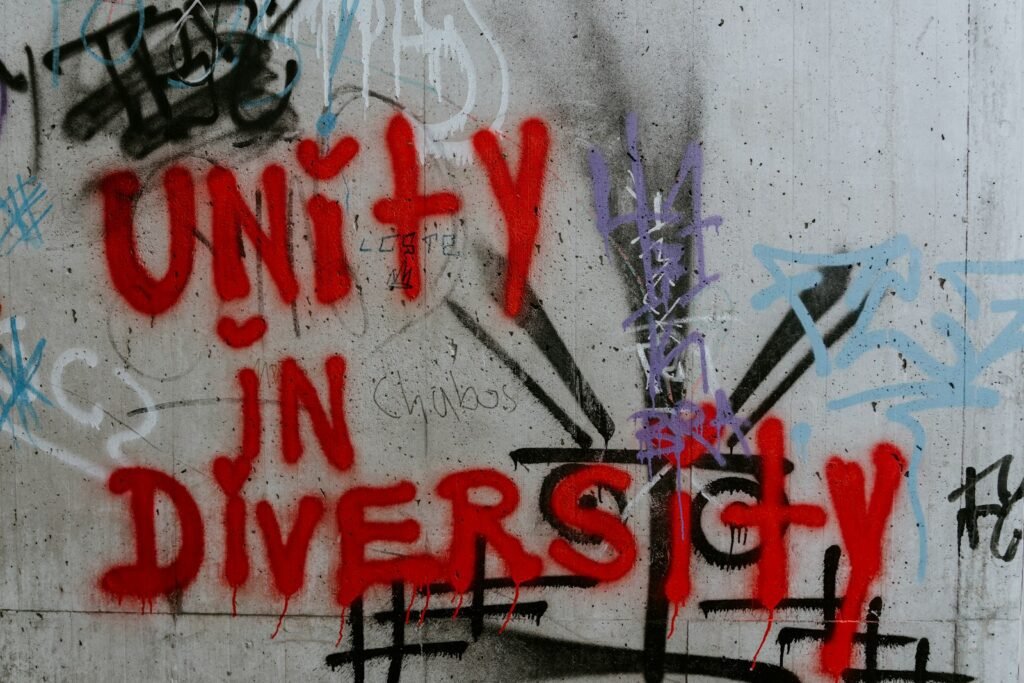Overview of Atlanta’s Diversity
Atlanta, a melting pot of cultures, is home to a diverse population that includes African Americans, Latinos, Asians, and immigrants from around the globe.
This rich tapestry of cultural, ethnic, and socioeconomic backgrounds makes it imperative for healthcare providers to deliver culturally competent care.
The ability to understand and respect patients’ cultural backgrounds significantly enhances the quality of care and patient satisfaction.
Importance of Culturally Competent Care
Culturally competent care is more than just a buzzword—it’s a necessity in today’s diverse society.
It involves recognizing and responding to the cultural needs of patients, which improves communication, builds trust, and ultimately leads to better health outcomes.
For Black healthcare professionals in Atlanta, providing culturally competent care is key to addressing the unique healthcare needs of the city’s diverse communities.
Understanding the Cultural Landscape of Atlanta

Demographics of Atlanta’s Population
Atlanta’s population is a vibrant mix of cultures.
- African American (51%)
- White (40%)
- Latino/Hispanic (10%)
- Asian (5%)
Understanding these demographics is crucial for healthcare providers aiming to deliver personalized care.
Health Disparities in Atlanta
Health disparities among different cultural groups are significant in Atlanta.
For example, African Americans and Latinos are more likely to suffer from chronic conditions like diabetes and hypertension.
These disparities can be attributed to various factors, including socio-economic barriers, access to healthcare, and cultural beliefs.
Addressing these disparities through culturally competent care can improve healthcare outcomes.
Core Principles of Culturally Competent Care
Cultural Awareness
Self-awareness among healthcare providers is the first step towards cultural competence.
Black healthcare professionals should recognize their own biases and assumptions, as these can affect patient care. Reflecting on personal experiences and engaging in continuous learning can help mitigate these biases.
Communication Skills
Effective communication is essential in providing culturally competent care.
Black healthcare professionals in Atlanta must hone their ability to engage with patients from diverse backgrounds by employing active listening and demonstrating empathy.
This involves not only conveying medical information clearly but also being mindful of language barriers and cultural nuances that may influence patient interactions.
By fostering an open dialogue, healthcare providers can better understand the beliefs and values that shape their patients’ perceptions of health and healthcare, ultimately leading to stronger patient-provider relationships.
Patient Education
Educating patients about their health is a vital component of culturally competent care.
Black health providers should tailor educational materials and discussions to reflect the cultural and linguistic preferences of their patients.
This might include using culturally relevant examples, addressing specific health concerns prevalent in particular communities, and ensuring that educational content is accessible and easy to understand.
Empowering patients with knowledge enables them to make informed decisions about their health, contributes to greater engagement in their care, and promotes overall well-being within the community.
Cultural Knowledge
Gaining knowledge about patients’ cultural backgrounds is essential.
Black healthcare professionals can use resources like cultural competency training, community engagement, and academic research to understand the unique cultural needs of their patients.
The Role of Education
Education plays a crucial role in bridging gaps between healthcare providers and patients from diverse cultural backgrounds.
For Black health providers, ongoing education in cultural competency enhances their ability to understand and respond to the unique health needs of their communities.

This includes not only formal training programs but also participation in community health workshops and seminars that focus on the social determinants of health.
By understanding the historical context and health disparities affecting their patients,
Black medical providers can advocate for more equitable healthcare access and contribute to systemic change.
Furthermore, educating the next generation of healthcare providers about the importance of cultural awareness ensures that future practices are rooted in inclusivity and respect, ultimately leading to improved patient outcomes and satisfaction.
Cultural Sensitivity
Cultural sensitivity involves recognizing and respecting the diversity of patients’ beliefs, practices, and values.
Healthcare providers, particularly Black healthcare professionals, must develop skills to communicate effectively with patients from various backgrounds.
This includes actively listening to patients, being aware of non-verbal cues, and avoiding assumptions based on racial or cultural stereotypes.
Creating a welcoming environment encourages open dialogue and fosters trust, which is crucial for effective treatment.
Additionally, addressing any preconceived notions can help healthcare providers form more meaningful relationships with their patients, enabling a deeper understanding of their unique needs and preferences.
By prioritizing cultural sensitivity, healthcare providers can ensure that all patients receive equitable and respectful care.
Cultural Skills
Developing cultural skills is the practical application of cultural knowledge, ensuring that healthcare providers can effectively implement culturally competent care in clinical settings.
Black physicians should learn to adapt their communication styles and treatment approaches to align with the cultural contexts of their patients.
This may involve incorporating traditional health practices or understanding specific cultural perspectives on health and illness.
Role-playing scenarios, training workshops, and mentorship from experienced colleagues can enhance these skills, preparing healthcare providers to navigate complex patient interactions with confidence and sensitivity.
Cultural Encounters
Actively seeking out cultural encounters can deepen understanding and reinforce the importance of cultural competence in healthcare.
Black providers of care can participate in community health events, collaborate with local organizations, and engage with diverse patient populations to gain firsthand experience.

These encounters are invaluable for appreciating the nuances of different cultures, enabling providers to respond more effectively to patients’ preferences and needs.
By immersing themselves in diverse contexts, healthcare professionals can foster a deeper respect for cultural differences, which ultimately translates into improved patient care and outcomes.
Practical Strategies for Delivering Culturally Competent Care
Effective Communication
Communication is at the heart of culturally competent care.
- Overcome language barriers using interpreters or translation services.
- Understand non-verbal cues and cultural nuances to enhance patient interactions.
- Use plain language to ensure patients fully understand their diagnoses and treatment plans.
Patient-Centered Care
Involve patients in decision-making processes that respect their cultural values and beliefs.
Tailor care approaches to meet the specific needs of patients from different cultural backgrounds.
Building Trusting Relationships
Establishing trust is essential for effective healthcare delivery, particularly in diverse populations.
Healthcare providers should take the time to listen to their patients and show genuine interest in their concerns.
Building rapport involves being empathetic, respectful, and responsive to patients’ needs.
By demonstrating cultural humility—acknowledging one’s own cultural biases and being open to learning from patients—providers can create a safe and supportive environment where patients feel valued and understood.
This trust can lead to more honest conversations about health issues, ultimately improving patient engagement and adherence to treatment plans.
Furthermore, involving family members or community leaders in the healthcare process can enhance trust, as these individuals often hold significant sway in cultural contexts, enabling healthcare professionals to create a more inclusive and supportive environment for their patients.
Training and Education
Ongoing training and education in cultural competence are essential for all healthcare providers.
By incorporating cultural competency training into medical education and professional development programs, healthcare institutions can equip their staff with the necessary skills and knowledge to deliver quality care to diverse patient populations.
Workshops and seminars led by cultural experts can provide valuable insights, while case studies highlight real-world scenarios that require sensitive, culturally informed responses.
Regular assessments and feedback mechanisms can help providers reflect on their practices and identify areas for improvement, ensuring that cultural competence remains a priority in their patient care approach.
Cultural Adaptation of Healthcare Practices
Adapting medical practices to align with cultural beliefs can improve patient compliance and outcomes.
For example, respecting traditional healing practices while integrating modern medical treatments can be effective.
Healthcare providers should aim to create an environment where patients feel safe and respected, allowing for open dialogue about their health beliefs and preferences.
This can involve offering multiple treatment options that accommodate various cultural perspectives, such as dietary restrictions or traditional remedies.
Additionally, having access to interpreters or bilingual staff members can bridge communication gaps, ensuring that patients fully understand their treatment plans and feel valued in their healthcare journey.
By embracing cultural variations and personalizing care, providers not only boost patient satisfaction but also encourage better health outcomes through increased engagement and adherence to treatment regimens.
Collaborative Care Models
Implementing collaborative care models can significantly enhance the healthcare experience for diverse populations.
These models involve multidisciplinary teams that include healthcare professionals from various cultural backgrounds, as well as community health workers who understand the specific needs of the populations they serve.
By fostering a team-based approach, healthcare providers can circulate knowledge and understand patients’ backgrounds, leading to more tailored and effective care strategies.
Furthermore, this collaborative environment encourages shared decision-making, where patients are active participants in their own health journeys, fostering a sense of ownership and accountability.
Leveraging Technology for Inclusivity
Utilizing technology to promote inclusivity in healthcare is another vital strategy.
Telehealth services can offer accessible options for patients who may face barriers to in-person visits due to mobility issues, language differences, or geographic distance.
Additionally, developing mobile applications that provide culturally relevant health information and resources can empower patients to take charge of their health.
By integrating technology thoughtfully, healthcare systems can reach and effectively support various communities, ensuring that all individuals have equitable access to quality care.
Addressing Specific Cultural Needs in Atlanta
Health Beliefs and Practices
Different cultural groups have unique health beliefs and practices. Understanding these can help black healthcare professionals provide care that is respectful and effective.
- African American Community: Awareness of historical mistrust in the medical system can help in building rapport and trust.
- Latino/Hispanic Community: Recognize the importance of family involvement in healthcare decisions.
- Asian Community: Respect for traditional medicine practices can enhance patient cooperation.
Communication Styles and Preferences
Effective communication is critical in delivering quality healthcare. Different cultural backgrounds lead to varying communication styles and preferences that healthcare providers must navigate.
- Direct vs. Indirect Communication: Some cultures, such as many in Western contexts, may prefer direct communication, valuing straightforward dialogue. In contrast, other cultures might favour a more indirect approach, where nuances and context hold significant importance.
- Non-verbal Communication: Understanding non-verbal cues is essential, as gestures, eye contact, and personal space can differ across cultural boundaries. For instance, in some Asian cultures, prolonged eye contact may be perceived as disrespectful, while in others it signifies attentiveness.
- Language Barriers: Ensuring access to interpreters or bilingual staff can bridge language gaps, enhancing patient understanding and satisfaction.
By recognizing and adapting to these diverse communication styles, healthcare providers can foster more effective interactions with their patients, ultimately leading to better health outcomes and patient experiences.
Religious and Spiritual Considerations
Religious beliefs significantly influence healthcare decisions. Accommodating religious practices within healthcare settings can improve patient satisfaction and compliance.
Overcoming Barriers to Culturally Competent Care
Common Challenges
- Language barriers can hinder effective communication.
- Limited cultural knowledge may result in misunderstandings.
- Time constraints can make it difficult to provide culturally sensitive care.
Solutions and Resources
- Training programs and cultural competency workshops can enhance understanding.
- Online resources and community engagement can provide valuable insights.
- Hiring interpreters or using translation services can overcome language barriers.
The Role of Healthcare Institutions in Promoting Culturally Competent Care
Institutional Support
Healthcare institutions play a vital role in fostering a culturally competent environment. Policies and practices that support cultural competency can make a significant difference.
Integration of Culturally Competent Practices
Healthcare institutions can implement various strategies to promote cultural competency within their teams.
This can include developing guidelines that prioritise the understanding of diverse cultural backgrounds in patient care.
Additionally, institutions should encourage the incorporation of cultural assessments into patient intake processes, enabling healthcare providers to tailor their care approaches based on patients’ specific cultural needs and beliefs.
Providing resources and support for staff members to engage in ongoing education about different cultures can also enhance their ability to connect with and serve a diverse patient population effectively.
By nurturing an inclusive and respectful atmosphere, healthcare institutions not only improve patient satisfaction but also contribute to better health outcomes overall.
The Impact of Cultural Competency on Patient Care
When healthcare professionals embrace cultural competency, they are better equipped to deliver care that resonates with their patients’ values and preferences.
This alignment can lead to improved adherence to treatment plans, as patients feel more seen and understood in the context of their cultural identities.
Culturally competent care also reduces the likelihood of misunderstandings and errors, fostering clearer communication between providers and patients.

Ultimately, prioritizing cultural competency within healthcare settings paves the way for a more equitable health system that acknowledges and values the rich diversity of the patient population.
Improved Patient Satisfaction
Culturally competent care leads to higher patient satisfaction and trust. Patients are more likely to adhere to treatment plans and engage in follow-up care.
Culturally competent care not only fosters higher patient satisfaction and trust but also strengthens the overall patient-provider relationship.
When healthcare providers demonstrate a deep understanding and respect for their patients’ cultural backgrounds, patients feel seen and valued, which in turn makes them more comfortable and confident in their care.
This increased comfort leads to greater adherence to treatment plans, as patients are more likely to believe that the recommended treatments align with their personal beliefs and values.
Additionally, patients who feel understood and respected are more inclined to engage in follow-up care, knowing that their healthcare provider will continue to honor their cultural preferences throughout the treatment process.
This creates a positive feedback loop, where trust and effective communication lead to better health outcomes and a stronger, more loyal patient base.
Enhanced Health Outcomes
The integration of cultural competency within healthcare not only elevates patient satisfaction but also significantly enhances health outcomes.
When healthcare providers are attuned to the cultural nuances that affect health behaviors and beliefs, they can develop more effective and personalized treatment plans.

This tailored approach encourages patients to actively participate in their care, as they feel their unique perspectives are acknowledged and respected.
Research has shown that culturally competent care can lead to reduced disparities in health access and treatment, ultimately fostering a healthier population.
By recognizing and addressing the social determinants of health prevalent in diverse communities, healthcare professionals can promote prevention, early detection, and timely intervention, contributing to overall improvements in public health.
Reduction in Health Disparities
Culturally competent care can help reduce health disparities by providing equitable care to all patients, regardless of their cultural backgrounds.
Culturally competent care plays a crucial role in reducing health disparities by ensuring that all patients receive fair and personalized treatment, no matter their cultural backgrounds.
By acknowledging and addressing the unique needs, beliefs, and experiences of diverse patient populations, healthcare providers can tailor their care to overcome barriers that often lead to inequities in health outcomes.
This approach not only helps to close the gap in healthcare quality and access but also promotes a more inclusive environment where every patient feels empowered and supported.
When care is equitable and culturally sensitive, it levels the playing field, giving all patients the opportunity to achieve the best possible health outcomes, regardless of the social or cultural challenges they may face.
Better Communication and Understanding
Effective communication is a cornerstone of culturally competent care.
When healthcare providers possess cultural awareness, they can engage in more meaningful interactions with patients, leading to better understanding of health issues and concerns.
This involves not only language proficiency but also an appreciation for non-verbal cues, traditions, and values that may influence how patients perceive their health and treatment.
By fostering an environment of trust and open dialogue, providers can better identify patient needs, preferences, and potential barriers to care.
Enhanced communication not only improves the patient experience but also ensures that critical health information is relayed accurately, ultimately leading to improved health literacy and adherence to medical advice.
Future Trends in Culturally Competent Care
Technological Innovations
Technology, such as telemedicine and AI, can support culturally competent care by providing tools for better communication and personalized care.
Technology, including telemedicine and AI, enhances culturally competent care by offering innovative tools that improve communication and enable more personalized treatment.
Telemedicine breaks down geographical and language barriers, allowing patients from diverse backgrounds to access healthcare in their preferred languages and in environments where they feel comfortable.
AI can assist in tailoring care plans by analyzing individual patient data, cultural preferences, and potential health disparities, ensuring that the care provided is not only effective but also culturally relevant.
technological advancements help healthcare providers bridge cultural gaps, fostering stronger patient relationships and delivering care that truly meets the unique needs of each individual.
Policy Advocacy
In parallel with education, advocating for policies that prioritise culturally competent care is crucial.
This includes supporting initiatives that encourage workforce diversity within healthcare settings and policies that hold institutions accountable for providing equitable care.
By engaging in advocacy efforts, healthcare professionals can work towards dismantling systemic barriers that disproportionately affect marginalized groups.
Through collaborative approaches with community organizations, policymakers can ensure that culturally competent care becomes a standard practice, thereby contributing to a healthier society for all individuals.
Evolving Demographics
Changes in Atlanta’s demographics will influence healthcare practices.
Continuous learning and adaptation are key to staying relevant.
Ongoing learning and adapting to new cultural dynamics in healthcare are essential for providing high-quality care.
As Atlanta’s demographics continue to evolve, these shifts will inevitably shape healthcare practices in significant ways.
To remain effective and relevant, healthcare providers must engage in continuous learning and adaptation, keeping pace with the changing cultural landscape.
Ongoing education about new cultural dynamics is crucial for delivering high-quality care, as it ensures that providers can respond to the unique needs of diverse patient populations.
By staying informed and adaptable, healthcare professionals can offer care that is both culturally sensitive and aligned with the latest demographic trends, ultimately improving patient outcomes and maintaining trust within the community.
Conclusion
Recap of Key Points
Offering culturally competent care in Atlanta involves understanding the diverse cultural landscape, gaining cultural knowledge, and applying practical strategies to meet the unique needs of patients.
Call to Action
As we strive to enhance culturally competent care in Atlanta, it is imperative for healthcare professionals and institutions to actively engage with the diverse communities they serve.
This can be achieved by fostering partnerships with local organizations, participating in cultural competency training, and advocating for inclusive policies.
By prioritizing these efforts, we can create a healthcare environment that respects and addresses the specific needs of all individuals, ultimately leading to improved health outcomes across the board
Black healthcare professionals in Atlanta are encouraged to implement culturally competent practices in their daily work.
Doing so will positively impact patient care and community health. Join us at [Brand Name] for more resources and support in providing culturally competent care.
FAQs
What is Culturally Competent Care?
Culturally competent care involves recognizing and respecting patients’ cultural beliefs and practices, and integrating this understanding into healthcare delivery.
Why is it Important in Atlanta’s Diverse Community?
Atlanta’s diverse population requires healthcare providers to understand and address the unique cultural needs of their patients to provide effective care.
How Can Healthcare Providers Improve Cultural Competency?
Healthcare providers can improve cultural competency through ongoing training, community engagement, and continuous learning about the cultural backgrounds of their patients.
What Are Some Common Cultural Barriers in Healthcare?
Common barriers include language differences, limited cultural knowledge, and implicit biases. Overcoming these barriers involves using interpreters, engaging in cultural competency training, and self-reflection.
How Does Culturally Competent Care Improve Patient Outcomes?
Culturally competent care improves patient outcomes by enhancing communication, building trust, and providing care that is respectful of and responsive to patients’ cultural needs.
What Resources Are Available for Learning About Cultural Competency?
There are numerous resources available, including cultural competency training programs, online courses, academic research, and community engagement initiatives.
By adopting these guidelines and best practices, Black healthcare professionals in Atlanta can lead the way in providing culturally competent care that meets the diverse needs of their patients and improves healthcare outcomes for all.
Cheers to health! 🥂
